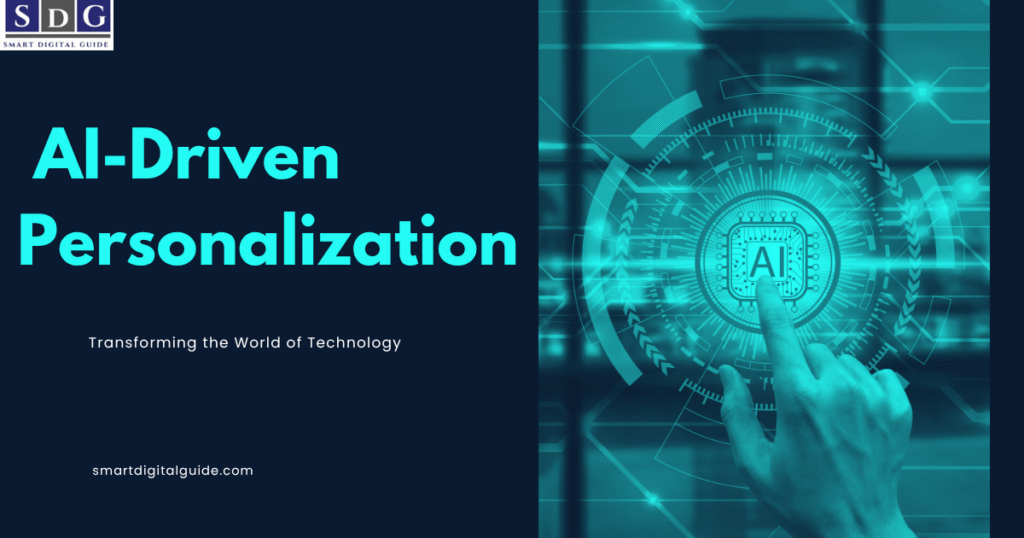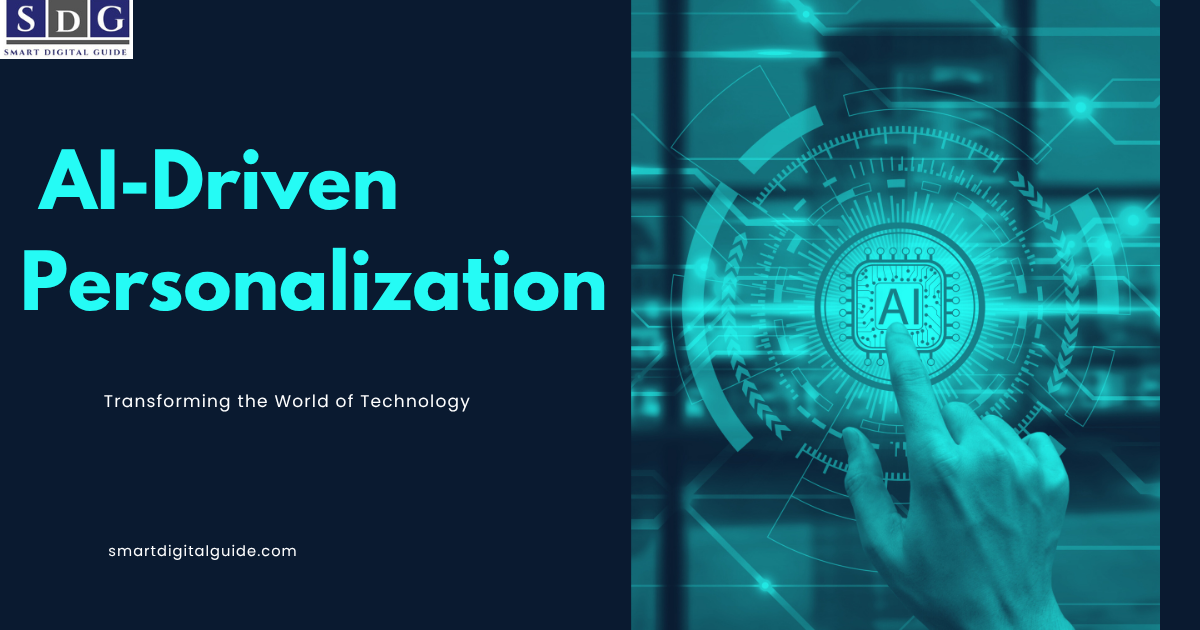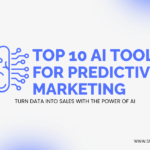In our increasingly connected society, consumers anticipate that brands will recognize them as individuals rather than mere statistics. AI-driven personalization has become the key element in offering outstanding customer experiences during this digital age. Rather than relying on one-size-fits-all marketing tactics, companies are utilizing artificial intelligence to craft customized interactions that deeply resonate with every consumer.
The era when personalization simply involved using a customer’s first name in email communications is behind us. With advancements in AI insights, businesses are now capable of foreseeing needs, forecasting preferences, and providing instantaneous recommendations. This evolution is not merely enhancing marketing—it is reshaping the complete customer experience.

The Emergence of AI-Driven Personalization
The path toward individualized customer interactions started with basic segmentation methods that clustered customers by common traits. Nevertheless, segmentation had its limitations—it wasn’t sophisticated enough to meet specific individual desires. AI-powered personalizationAI-Driven Personalization: Revolutionizing Customer Experience
In our increasingly interconnected society, consumers anticipate that brands recognize them as unique individuals rather than mere statistics. The rise of AI-driven personalization has become a pivotal element in delivering outstanding customer experiences within this modern digital landscape. Rather than relying on one-size-fits-all marketing strategies, companies are now harnessing artificial intelligence to facilitate personalized interactions that resonate meaningfully with each consumer.
The era where personalization merely involved using first names in email communications is behind us. With the advent of AI-powered insights, businesses can now proactively identify needs, forecast preferences, and provide real-time recommendations. This evolution is not only reshaping marketing; it’s also revolutionizing the entire customer experience.
The Importance of AI-Why AI-Driven Personalization is Crucial in 2025 and Beyond
As attention spans continue to diminish, effectively engaging customers hinges on delivering the appropriate message to each individual at precisely the right moment. Research indicates that personalized marketing can boost conversion rates by as much as 80%, while also enhancing brand loyalty.
Here are several pivotal reasons why AI-based personalization has transformed the landscape:
- Relevance: Customers receive offers and content tailored specifically to their interests.
- Efficiency: Brands enhance their marketing expenditures by concentrating on the most pertinent customer segments.
- Scalability: Artificial Intelligence enables the customization of experiences for millions of consumers at once.
- Customer Retention: Tailored interactions foster emotional bonds, thereby decreasing churn.
How AI Facilitates Customized Customer Experiences
The personalization driven by AI functions by gathering and examining customer data from various sources—such as websites, mobile applications, email marketing campaigns, social media platforms, and even in-person interactions. Below are the key ways in which AI is transforming personalization:
1. Predictive Analytics
AI has the capability to anticipate a customer’s needs even before they express them. For example, an online retail site can recommend items based on browsing history, past purchases, and seasonal patterns. This predictive power enhances customer engagement and fosters repeat buying.
2. Dynamic Content Personalization
Websites and applications can now provide more than just static content. AI algorithms can customize product suggestions, homepage designs, and promotional messages according to real-time user actions. This guarantees that every visitor encounters content tailored to their immediate interests.
3. Highly Targeted Email Campaigns
Rather than sending identical emails to an entire list of contacts, AI empowers marketers to craft personalized marketing communications featuring unique subject lines, product recommendations, and optimal send times for each individual recipient.
4. Emotionally Intelligent Chatbots
Chatbots powered by AI can detect consumer sentiment through language cues and respond with greater empathy in a human-like fashion. This leads to smoother customer interactions and quicker issue resolution.
5. Consistent Omnichannel Personalization
AI provides uniform personalization across all points of contact with customers. Whether engaging on Instagram, visiting a physical location or exploring an application, it integrates data to ensure a cohesive personalized experience.
Examples of AI-Enhanced Personalization in the Real World
- Numerous leading brands across the globe are utilizing AI to revolutionize customer interaction:
- Netflix employs AI to suggest shows and films based on users’ viewing patterns, enhancing subscriber retention and minimizing churn rates.
- Amazon utilizes AI-driven product suggestions, which reportedly account for 35% of its overall sales.
- Spotify creates custom playlists such as “Discover Weekly” through AI algorithms that examine listening habits.
- Sephora implements AI-enabled chatbots to offer beauty recommendations specifically tailored to each customer’s skin type and preferences.
The Importance of Data in AI Personalization
- The effectiveness of personalization powered by AI is greatly contingent upon data.Examples of AI-Enhanced Personalization in the Real World
- Some of the most prominent brands globally are harnessing AI to enhance customer interaction:
- Netflix utilizes AI to suggest television shows and films tailored to viewing history, helping maintain subscriber interest and minimize attrition.
- Amazon employs AI-driven recommendations that account for approximately 35% of its overall sales figures.
- Spotify generates personalized playlists such as “Discover Weekly” through AI algorithms that evaluate user listening patterns.
- Sephora implements chatbots powered by AI to offer beauty product suggestions customized for individual skin types and preferences.
The Importance of Data in Personalizing with AI
- The effectiveness of personalization driven by AI relies significantly on data. Each click, scroll, and engagement yields essential insights. The true potential is realized when artificial intelligence can integrate these elements into a comprehensive understanding of the customer.
- Nonetheless, organizations must emphasize data protection and adhere to regulations such as GDPR and CCPA. Clear communication about how data is utilized fosters trust—a vital element in nurturing enduring customer partnerships.
- Overcoming the Challenges of AI-Driven Personalization
- While there are considerable benefits to implementing AI-fueled personalization, it does present several unique challenges:
- Data Quality Issues – Poor or insufficient data can lead to recommendations that miss the mark.
- Integration with Legacy Systems – Many organizations struggle to mesh AI solutions with older technological infrastructures.
- Ethical Concerns – Overly tailored experiences can make customers feel uneasy.
- Implementation Expenses – Though costs are lowering over time, embracing AI still requires a substantial investment in technology and expert personnel.
- Forward-thinking companies address these issues by emphasizing robust data governance, ensuring ethical use of AI, and building adaptable technology systems.
The Future of AI-Enhanced Customer Engagement
Looking ahead, we anticipate that AI-driven personalization will become more interactive. Here are some trends to watch for:
- Voice and Conversational Artificial Intelligence: As voice assistants gain traction, customized vocal interactions will be crucial within customer experiences.
- Augmented Reality (AR) Integration: AR powered by AI will allow consumers to “try before they buy” in a personalized virtual environment.
- Real-Time Emotion Detection: Advanced AI may recognize slight facial expressions or tonal shifts, adjusting its responses on the fly.
- Emphasis on Zero-Party Data Usage: Customers may willingly share their preferences in exchange for more relevant and enjoyable experiences.
Essential Insights for Businesses
To thrive in today’s landscape of customer experience, companies must move beyond conventional personalization and adopt AI-driven insights wholeheartedly. This involves:
- Responsibly gathering and examining customer data.
- Leveraging AI tools to forecast consumer needs and provide exceptionally relevant interactions.
- Ensuring uniform experiences across all platforms.
- Continually updating personalization tactics based on input and performance measures.
- Successful brands will be those that recognize customers as individuals with distinct preferences rather than mere data points.
Concluding Thoughts
We are embarking on a new era where AI-enhanced personalization has transitioned from being an optional feature to a standard expectation. Modern consumers desire brands that truly understand them, foresee their requirements, and cultivate meaningful engagements. By utilizing artificial intelligence in marketing strategies, businesses can create tailored customer experiences that foster loyalty, increase sales, and set themselves apart in a competitive environment.
In this evolving realm of customer experience, effective personalization transcends technology; it is about fostering authentic human connections at scale—with AI facilitating this endeavor.









